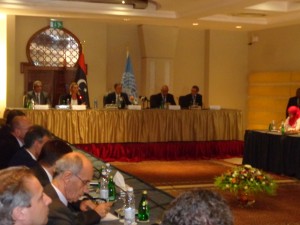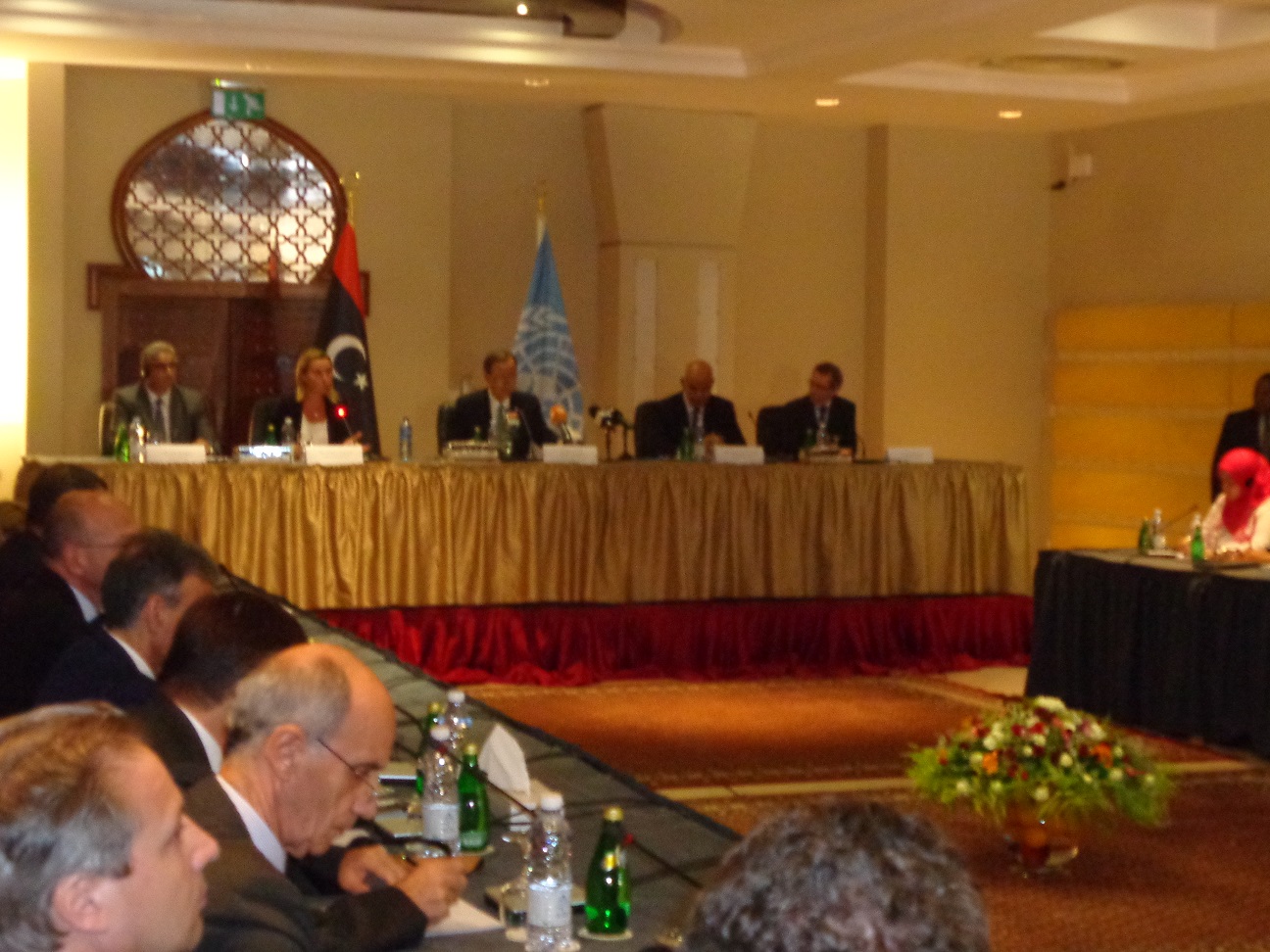By Sami Zaptia.

Tripoli, 11 October 2014:
In his second visit to Tripoli . . .[restrict]since the 2011 revolution that had ousted the 42 year dictatorial reign of Qaddafi, UN Secretary General Ban Ki-moon admitted that he visits Libya this time round with a “heavy heart”.
Ban was speaking to a gathering of Libyan House of Representatives (HoR) members, Ambassadors and Libya Special Representatives from Italy, Malta, France and the UK.
Arriving in Tripoli in a surprise visit to boost the reconciliation talks taking part between the two political factions threatening to push Libya over the edge into chaos, Ban said that nevertheless he was “encouraged by the support and commitment by the parties” to the dialogue process.
“If the violence does not cease immediately, prosperity will be a distant dream”, for Libyans. Most Libyans agree that the political process is the only way ahead. A military solution is “not sustainable”, he stressed but an “inclusive dialogue” was the solution.
All problems are to be solved through “dialogue” and all parties have to make “hard choices and decisions”. Libya needs “one parliament that represents all Libyans”. The UN recognizes the HoR, Ban stressed but added that” legitimacy requires inclusiveness based on consensus”. The HoR must “represent all Libyans”, he stressed again and again.
The number one priority now is that the fighting must stop “without preconditions”. Enough of the killing and displacement of people and destruction of property, Ban pleaded. However, he admitted revealingly to those present that he knew that they did not have “direct control of the armed groups” .
All must respect the ceasefire and all military must withdraw from cities. The attacks in Benghazi by Hafter and Ansar Al-Sharia must also stop. No military intervention will help resolve Libya’s problems, Ban concluded.
Fathi Bashagha, representing the group of HoR members boycotting the Tobruk sessions said that Libya was a “moderate Islamic” state and could not be a cradle for religious factions. Bashagha called for a political and not a religious dialogue and accepted the primacy of the ballot box and democratic process which accepts the role of the thuwar (revolutionaries) who he said were instrumental in winning the 2011 revolution.
Italy’s Foreign Minister Federica Mogherini, said that the risk of disunity for Libya and Europe is great. The country can be at the brink of a catastrophe for Libya, Europe and the international community. She called upon those present to save Libya from an extremely dangerous division. “All sides must show goodwill”, she stressed. No single side can claim to be the sole representatives of all sides.
The military must accept the election results and the majority must respect the minority. The confrontation must move to the political level, she concluded.
The Deputy head of the HoR, Emhemed Shuaib, was very brief. “We promised our people the continuation of dialogue towards stability”, he said and thanked the UN and international community for their help in the downfall of the Qaddafi regime in 2011.
[/restrict]









